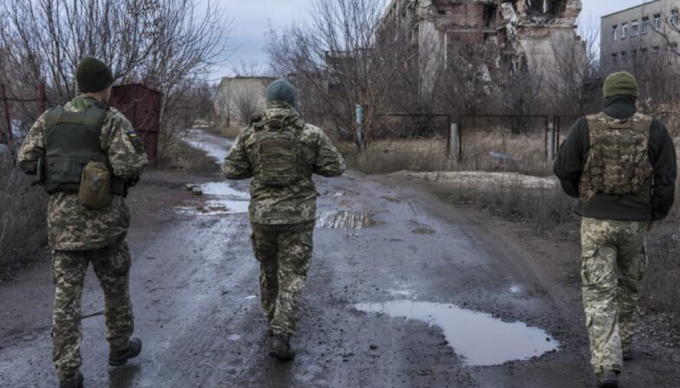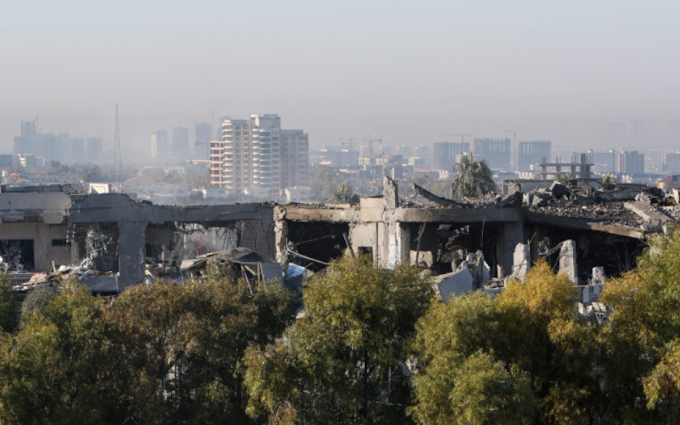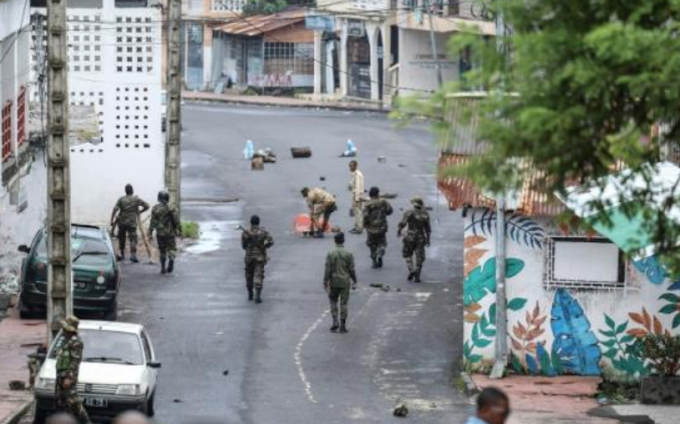 |
| REUTERS/Akhtar Soomro |
BY MUNIR AHMED and JON GAMBRELL AP
Pakistan air force attacked Iran in retaliation early Thursday. They targeted places where militants were hiding, and at least seven people were killed. This has increased tensions between the two countries.
Iran had attacked Pakistan on Tuesday, killing two children. Both Tuesday's and Thursday's attacks seemed to target different militant groups. Both countries claim that these groups found safe places in the other country.
These attacks can harm the relationship between Iran and Pakistan. Both countries have long been suspicious of each other regarding militant attacks. The situation also raises the risk of violence spreading in the Middle East which is already facing tensions due to conflicts like Israel Gaza war.
Pakistan's foreign ministry said their attack was a series of well-planned and targeted military strikes. They claimed it was done to prevent a large-scale terrorist activity that was expected soon.
The Baloch Liberation Army, a separatist group, said the attacks killed its people, and they warned that Pakistan would pay a price for this. The situation is complicated as Balochistan, both in Pakistan and Iran, has faced an insurgency by Baloch nationalists for more than two decades.
Pakistan named its operation "Marg Bar Sarmachar." In Iranian Persian, "marg bar" means "death," and it has been used since the Islamic revolution in 1979, referring to both the United States and Israel. The word "sarmachar" means guerrilla in the local Baluch language, used by militants in the cross-border region.
Iran reported that at least seven people, including three women and four children, were killed in the airstrike near Saravan along the border. However, they mentioned that the victims were not Iranian citizens. Iran demanded an immediate explanation from Pakistan.
The situation is complex, involving various insurgent groups operating in Iran and Pakistan. They share a common goal of an independent Balochistan for Baloch regions in Afghanistan, Iran, and Pakistan. However, suspicions exist about state support or leniency toward certain groups.
These events follow Iran's airstrikes in Iraq and Syria in response to a suicide bombing claimed by the Islamic State. The risk of escalation remains, and both countries share a long and largely lawless border. Smugglers and militants pass freely, making the region crucial for the global opium supply originating in Afghanistan.
The attacks also renew questions about the readiness of their military forces, especially their radars and air defense systems. The geopolitical considerations involve Pakistan's military dependence on foreign fighter jets and the complex relationships with countries like the US, China, and France.

.png)







